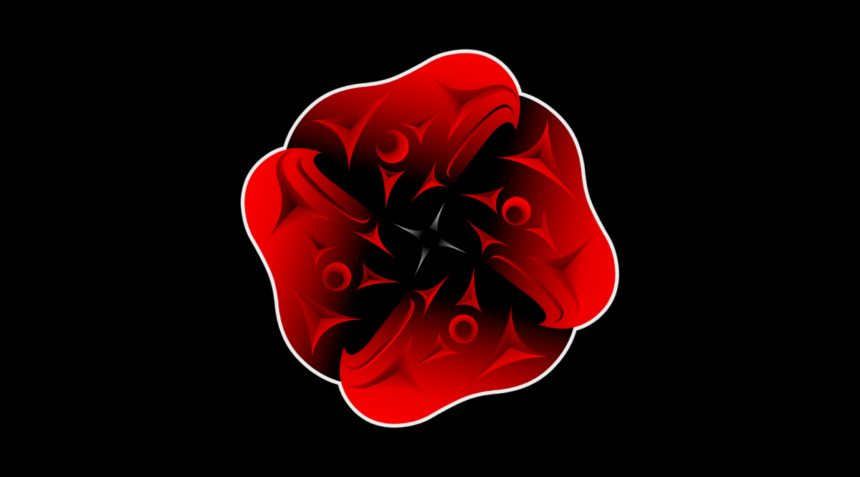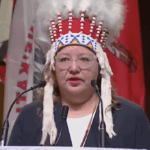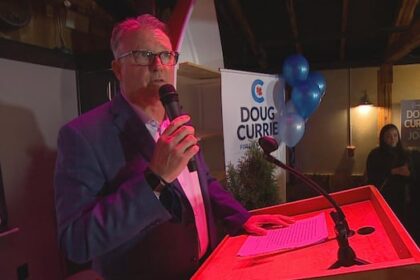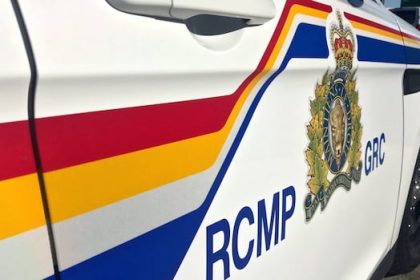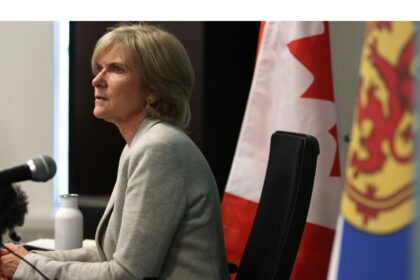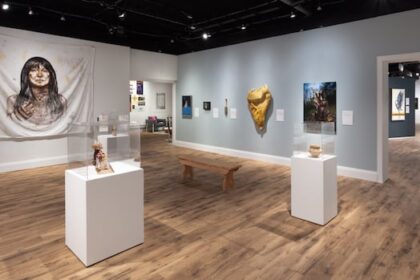Iconic poppy honouring Indigenous Veterans by West Coast artist Andy Everson. For more Andy Everson designs visit Totem Design House. totemdesignhouse.com. By Chevi Rabbit (ANNews) – On November 8, communities across Canada marked National Aboriginal Veterans Day, a day dedicated to honouring the First Nations, Métis, and Inuit men and women who served in Canada’s armed forces. In Maskwacis, the Four Nations – Samson, Ermineskin, Montana, and Louis Bull – gathered in remembrance, unity, and pride. “Today is about remembering those who fought for a country that did not always fight for them,” said Katherine Swampy, Samson Cree Nation Business Development Senior Manager. “Our people served with courage even when they weren’t treated equally. They stood on the front lines defending a country that, at home, was trying to erase them through residential schools and policies of genocide.” National Aboriginal Veterans Day exists because, until recent decades, Indigenous veterans were not recognized or treated with the same respect as non-Indigenous soldiers. Many Indigenous men and women joined the military to escape residential schools, meaning some were still underage when they enlisted. Many never made it home. “They were fighting for rights and freedoms that they themselves didn’t have,” Swampy explained. “Imagine being a young person leaving a residential school, going off to fight for democracy, and then coming home only to lose your Indian Status and your treaty rights. That was the reality for too many of our people.” According to Veterans Affairs Canada, an estimated 12,000 First Nations, Métis, and Inuit volunteers served in the major conflicts of the 20th century, with at least 500 losing their lives. Over 4,000 Indigenous people served in the First World War alone. Many faced additional barriers such as travelling long distances from remote communities, learning English, and overcoming racism within the military. Swampy also emphasized the deep injustice Indigenous veterans faced upon their return. “The benefits and rights that were promised – land, houses, and financial support – were often denied to Indigenous veterans,” said Swampy. “They came home proud of their service, but many were stripped of their Indian Status through enfranchisement. That meant they lost not only recognition as Indigenous people but also their treaty rights. In some families, their descendants still don’t have Status today.” Despite the pain, she said, remembrance is also about honour and resilience. “This day is about more than loss; it’s about truth and pride,” Swampy said. “Our veterans deserve full recognition for the sacrifices they made – for Canada and for our Nations. When we honour them, we’re also honouring our ancestors who fought to protect our people’s dignity and future.” “Many descendants still do not have Indian Status today,” echoed one Maskwacis elder. “That’s part of the ongoing legacy we must acknowledge.” Lest we forget. National Aboriginal Veterans Day raises awareness, restores respect, and reminds Canada that reconciliation must include those who defended it even when it did not defend them. Chevi Rabbit is a Local Journalism Initiative Reporter
Wednesday, 4 Mar 2026
Canada – The Illusion
Search
Have an existing account?
Sign In
© 2022 Foxiz News Network. Ruby Design Company. All Rights Reserved.
You May also Like
- More News:
- history
- Standing Bear Network
- John Gonzalez
- ᐊᔭᐦᑊ ayahp — It happened
- Creation
- Beneath the Water
- Olympic gold medal
- Jim Thorpe
- type O blood
- the bringer of life
- Raven
- Wás’agi
- NoiseCat
- 'Sugarcane'
- The rivers still sing
- ᑲᓂᐸᐏᐟ ᒪᐢᑿ
- ᐅᑳᐤ okâw — We remember
- ᐊᓂᓈᐯᐃᐧᐣ aninâpêwin — Truth
- This is what it means to be human.
- Nokoma


